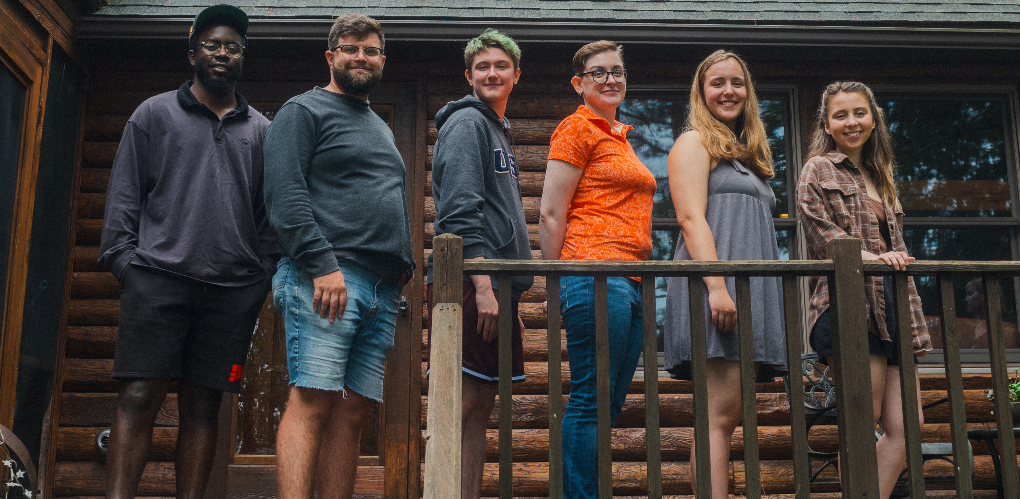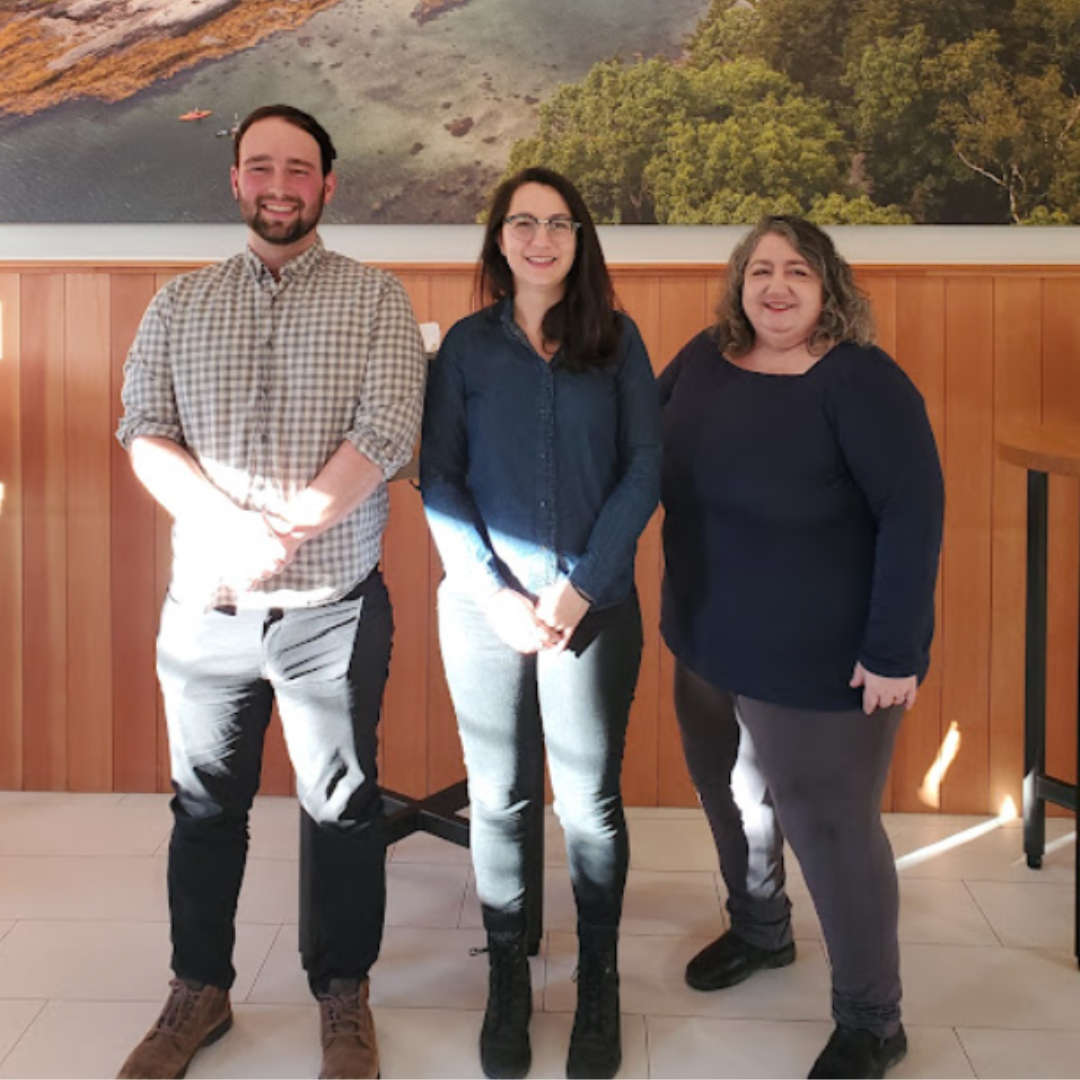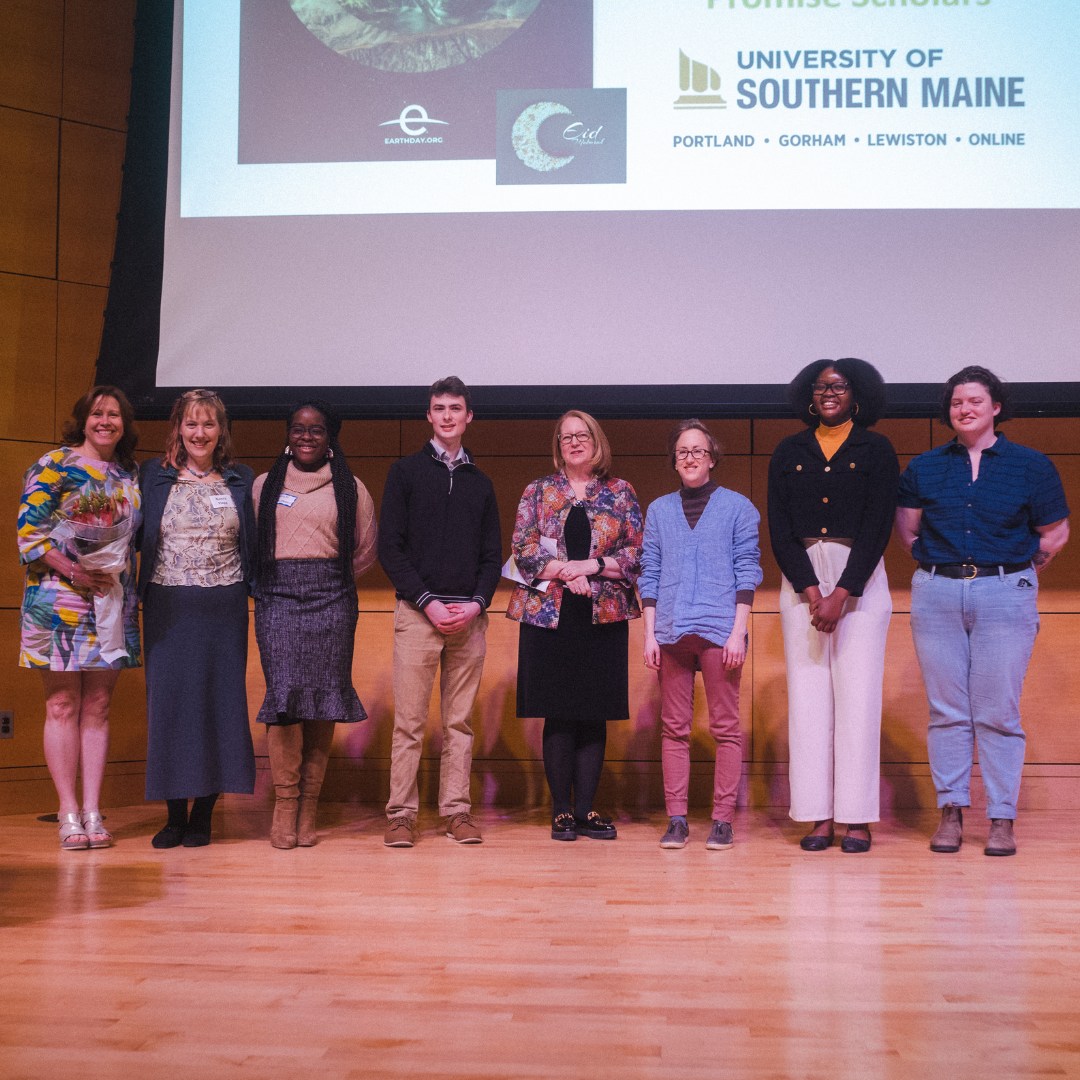This program is currently not adding new cohorts
Contact our Admissions team for help finding other program options.
Meet our 2023-2024 Shaw Innovation Fellows
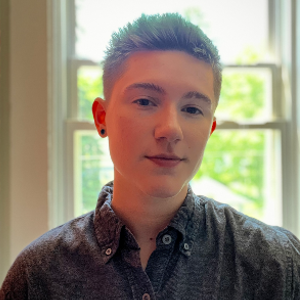
Matthew Bourassa is a senior in the Honors Program at the University of Southern Maine, currently located in Portland. He transferred to USM from Suffolk University in the Fall of 2022, recognizing that the Geography and Anthropology major would be a fantastic fit for him and wanting to pursue it. He is deeply passionate about his concentration in Sustainable Cultures and Communities, and that passion comes from a lifetime of experiencing just how important community is in our everyday lives. His project for the Shaw Fellowship aims to create both a resource and a network for those pursuing litigation against Maine public schools on the grounds of discrimination against protected categories as defined by the Maine Human Rights Act. This is a process in which many do not have the resources or knowledge to succeed on their own, and this disadvantage is capitalized on, which allows schools to continue harmful practices and remain unsafe for Maine students and families. With the Shaw Fellowship opportunity, he hopes to create a state-wide community united against discrimination and educated in its support.
Matthew’s long-term plan is to attend law school and work in Maine, supporting organizations serving diverse communities. He has historically been involved with organizations such as the Equality Community Center, the Civil Rights Team Project, and the Center for Restorative Justice in Boston, and the experience he has gained with them has been a large piece in empowering him to feel he can make a difference. He recognizes that he is where he is today because of the support he’s received from the ever-changing communities he is and has been a part of, and giving back to and fostering that community is a guiding point in his personal and professional life.
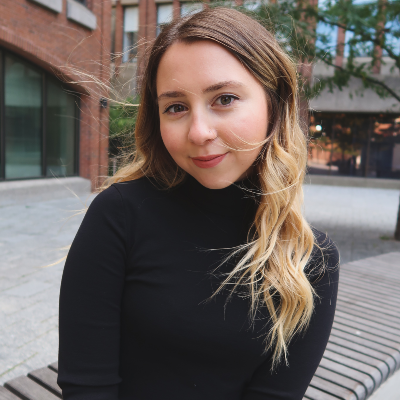
Charlie Grantham is a current Master of Public Health student and holds a Bachelor of Arts in Sociology from the University of Southern Mississippi. She will be studying the birthing experiences of rural women in Maine using qualitative methods. Charlie also works as the administrative specialist for the Honors Program at USM and recently completed a graduate assistantship focusing on maternal health, for which she co-authored three papers.
The United States has the highest maternal mortality rate in the developed world, and women living in rural areas are at an even greater risk compared to those living in urban areas. Charlie’s research seeks to understand women’s birthing experiences and answer questions such as: What are Maine women’s birthing experiences? Are there differences in the birthing experiences of women based on rurality, birthing facility, race/ethnicity, and/or immigrant status? Why do differences in birthing experiences occur? What are the inequities in Maine women’s birthing experiences? Charlie is passionate about highlighting women’s own voices and stories at the center of data collection and informed solutions to improve maternal health in the United States.
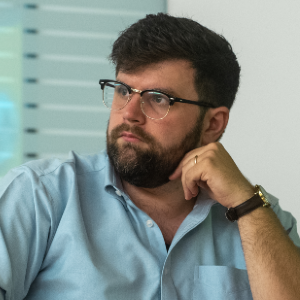
Owen Hill is a graduate student in Clinical Mental Health Counseling at the University of Southern Maine. Owen’s project is to develop and test a 6-week Emotional-Social Fitness curriculum which puts recent research on neuroplasticity (the mechanisms which the brain uses to grow, shrink and change) into conversation with research from the world of exercise science. It brings the concepts of stimulus and recovery—the two key ingredients which athletes use to grow muscle—out of the gym and puts them to work in the world of mental health. It does so by arming participants with techniques for recovering from, rather than avoiding, the stress they face in the world. The goal: harness this stress as a stimulus to grow your emotional and social fitness.
In addition to his work as a student, graduate assistant, and Shaw Fellow, Owen is a father, and an avid weightlifter, reader and multi-directional enthusiast who loves to follow his own curiosity down whatever tangled paths it leads. The work experiences of his ill-spent youth included managing the sales, service, and pre-press for more than ten million cumulative dollars of print materials, convincing rural Mainers to support marriage equality through one on one doorstep conversations, selling newspapers in Jackson Heights, demolishing home interiors, and delivering lobster rolls via bicycle. 34 years old, he lives in Portland with his wife, their two children and the several wily spirits who have taken residence in his home’s electrical.
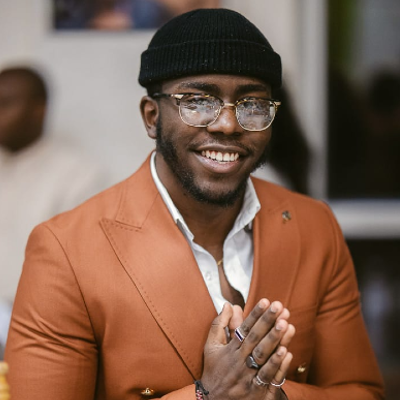
Joseph Inabanza is a junior at the University of Southern Maine majoring in Criminology with minors in History and Race and Ethnic Studies. Joseph has had several years of experience in education and juvenile justice with the Portland Public School Board and Maine Youth Court. His project aims at developing an alternative Juvenile Justice system that prioritizes prevention and rehabilitation. Through research, his project will feature recommendations for a proposed separate oversight board for Juvenile justice and increased restorative justice circle mediation in place of formal disciplinary hearings at the secondary school and court adjudication levels, and a proposed remodeling of the current youth detention center to foster rehabilitation and reintegration into the community. It will also include a new understanding of behavioral issues as demonstrations of learning disabilities and outlets for surrounding stresses. The goal is to transform our criminal justice system into a center for hope, justice, and rehabilitation.
Besides his civic and academic engagements, Joseph can be found serving at his local church, spending time with his little sister, hanging out with friends, at a basketball court or soccer field, skiing, kayaking, reading, binge-watching tv shows, and movies on almost all popular streaming services, weight lifting for aesthetics, and video gaming. So if you see him around don’t hesitate to say Hi!
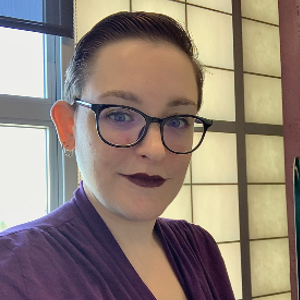
Katie “Mickey” McConnell (she/her) is a graduate student in the School of Social Work at the University of Southern Maine, where she earned her BA in Economics in 2020 with a minor in Food Studies. She has been professionally tutoring at the university for four years and helped establish the Adult Learner Coach position in USM’s Learning Commons. An undergraduate internship with Wayside Food Programs gave her the chance to explore Maine’s food system – a transformative experience that illustrated the many ways in which food justice is linked to economic justice. A class called Economics and Happiness changed the way she viewed the many potentials of economics; neuroscience and philosophy were frequent topics of discussion and gave her a new appreciation for how economic theory can be used to uplift instead of oppress.
Mickey’s academic interests include labor history, Queer Game Studies, and the political economy of food; her personal interests include video games, Marvel media, and D&D. Her first field placement and her love of gaming and all things fantasy and sci-fi led her to D&D as a therapeutic modality. Her project this year will be to develop a tabletop roleplaying game (TTRPG) resource for use by counselors, social workers, teachers, and anyone else who wants to explore the benefits of TTRPGs and imaginative play.
Mickey hopes to work with adolescents and adults after she graduates, leveraging the power of fun to help people meet their goals and build community.
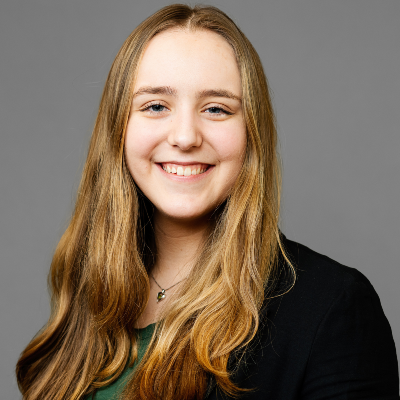
Katherine Mueller is a Windham resident who is pursuing a Bachelor’s degree in biochemistry at the University of Southern Maine. She will be studying the presence and impacts of benzophenone-3 (BP-3), a compound present in many chemical sunscreens, in various aquatic ecosystems in Maine. She will use the data collected to create a plan to mitigate the effects of BP-3 on the environment.
All chemical sunscreens contain one or more compounds that are capable of absorbing UV radiation. However, none of these compounds have been proven to be GRASE (Generally Recognized as Safe and Effective) and one compound in particular, BP-3, has been shown to have a wide array of effects, from endocrine disruption to cytotoxicity. When people wear sunscreens containing BP-3 and swim in lakes and oceans, it washes into the water and has the potential to harm the organisms living there. To determine how much BP-3 is present, Katherine will collect water samples from several bodies of water and analyze them using liquid chromatography. The concentrations found will be compared to toxicology reports to determine the risk level of Maine’s aquatic ecosystems.


